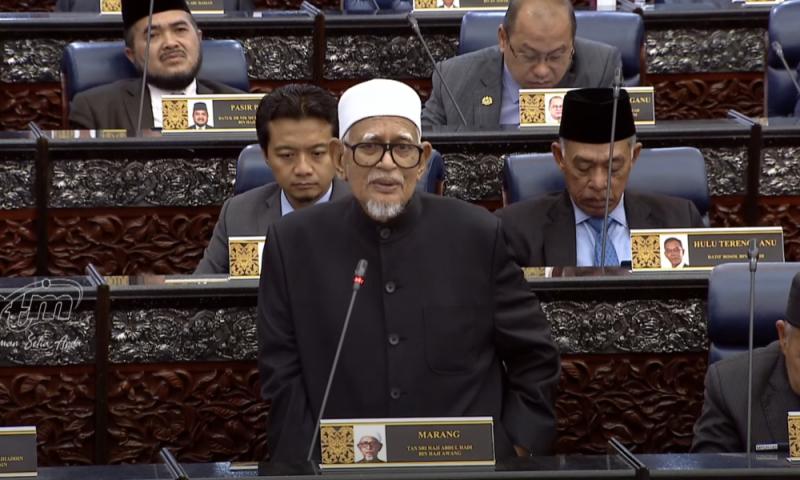
Andrew Sia
Published: Feb 23, 2025 10:45 AM
Updated: 1:45 PM
COMMENT | So the holy man goes on a “crusade” again. Not for religion though, this time it’s for Bahasa Malaysia (BM).
PAS president Abdul Hadi Awang recently complained that the national language is often sidelined by English, even if only “tiga ekor orang putih (three white people)” were present at events.
He added, “What is happening today is chaotic; in the shops in the city, the capital, all kinds of languages are spoken”, BM is minimal, while English is prominent.
Hadi makes it sound as if language diversity is negative, indeed “chaotic”. I can almost hear him wail that Kuala Lumpur sounds like “chang, ching, chong”.
This is a repeat of his accusation in 2022 that those who prefer English are “like slaves to the former colonial masters”.
Does he prefer a monoculture of the mind, to go with a monopoly of one religion?
Forgetting multicultural roots
Sadly, the PAS leader has forgotten the history of the Malacca Sultanate, a great entrepot for merchants from around the world where 84 languages were once spoken.
Traders spoke Cantonese, Tamil, Javanese, Hokkien, Gujarati, Arabic, Burmese, Telugu, Bugis, Achehnese, Persian, and even Japanese.
Published: Feb 23, 2025 10:45 AM
Updated: 1:45 PM
COMMENT | So the holy man goes on a “crusade” again. Not for religion though, this time it’s for Bahasa Malaysia (BM).
PAS president Abdul Hadi Awang recently complained that the national language is often sidelined by English, even if only “tiga ekor orang putih (three white people)” were present at events.
He added, “What is happening today is chaotic; in the shops in the city, the capital, all kinds of languages are spoken”, BM is minimal, while English is prominent.
Hadi makes it sound as if language diversity is negative, indeed “chaotic”. I can almost hear him wail that Kuala Lumpur sounds like “chang, ching, chong”.
This is a repeat of his accusation in 2022 that those who prefer English are “like slaves to the former colonial masters”.
Does he prefer a monoculture of the mind, to go with a monopoly of one religion?
Forgetting multicultural roots
Sadly, the PAS leader has forgotten the history of the Malacca Sultanate, a great entrepot for merchants from around the world where 84 languages were once spoken.
Traders spoke Cantonese, Tamil, Javanese, Hokkien, Gujarati, Arabic, Burmese, Telugu, Bugis, Achehnese, Persian, and even Japanese.
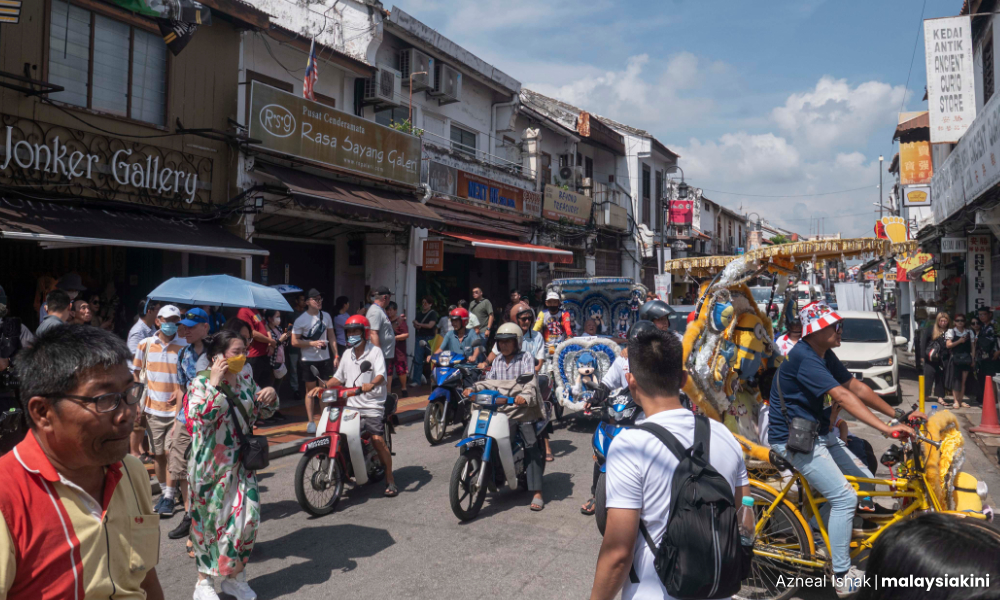
Malacca’s Jonker Walk
Multiple languages, both then and now, are actually a sign of economic diversity and dynamism. Take for example how the world’s people can be found in London. It’s the opposite of an isolated, monotonous village.
In old Malacca, Malay was the lingua franca. But Malaysia today welcomes traders, investors and tourists from all over the world. Here’s some “shocking” news for Hadi - their common language is English!
Do Malays look up to English?
I am all for “memartabatkan” (strengthening) our national language. But in the process, let’s not become insular and insulated, like the proverbial “frog under the coconut shell”.
At shopping malls, I speak BM to Malay staff. But several times, I’ve been surprised that they replied in English to me.
It’s as if they wanted to tell me, “kami pun tau speaking woi!” (hey, we speak English too!) ie that they, too, are educated, cosmopolitan city folks.
It’s probably the same reason why the name KLCC or Kuala Lumpur City Centre was chosen over PBKL or Pusat Bandaraya KL. Baru nampak “world” sikit lah.
That’s also why areas in Putrajaya are called “presint” - wannabe imitations of New York City precincts. Was the word “kawasan” deemed too low class?
We have to ask the guy in power then - Dr Mahathir Mohamad. The same fellow who complained recently that there were too many Chinese signboards in the city!
Multiple languages, both then and now, are actually a sign of economic diversity and dynamism. Take for example how the world’s people can be found in London. It’s the opposite of an isolated, monotonous village.
In old Malacca, Malay was the lingua franca. But Malaysia today welcomes traders, investors and tourists from all over the world. Here’s some “shocking” news for Hadi - their common language is English!
Do Malays look up to English?
I am all for “memartabatkan” (strengthening) our national language. But in the process, let’s not become insular and insulated, like the proverbial “frog under the coconut shell”.
At shopping malls, I speak BM to Malay staff. But several times, I’ve been surprised that they replied in English to me.
It’s as if they wanted to tell me, “kami pun tau speaking woi!” (hey, we speak English too!) ie that they, too, are educated, cosmopolitan city folks.
It’s probably the same reason why the name KLCC or Kuala Lumpur City Centre was chosen over PBKL or Pusat Bandaraya KL. Baru nampak “world” sikit lah.
That’s also why areas in Putrajaya are called “presint” - wannabe imitations of New York City precincts. Was the word “kawasan” deemed too low class?
We have to ask the guy in power then - Dr Mahathir Mohamad. The same fellow who complained recently that there were too many Chinese signboards in the city!
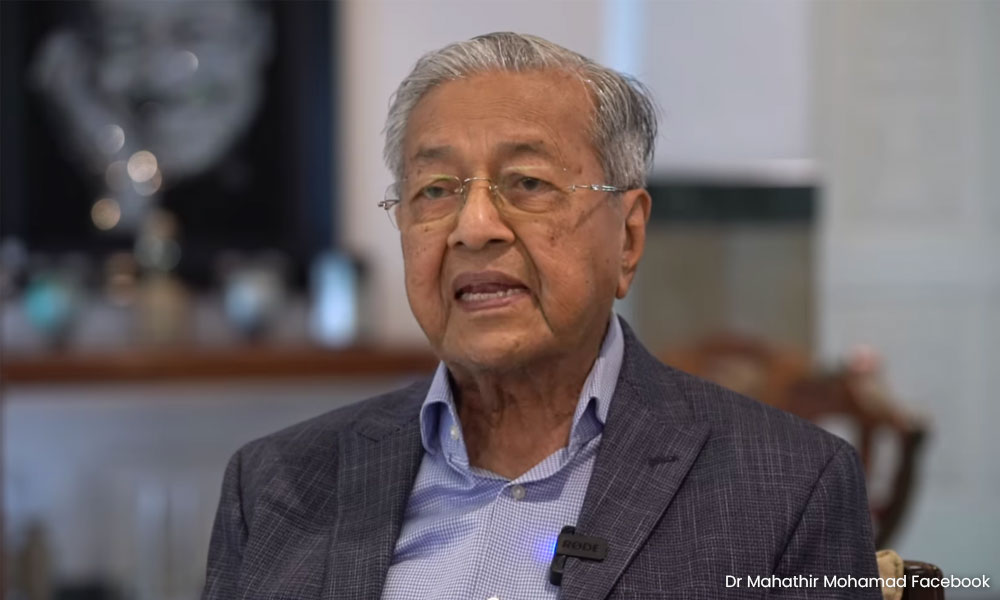
I grew up learning Ilmu Alam and Ilmu Hisab in school, only to later see them changed to the pseudo-English words Geografi and Matematik respectively.
Similarly, “perusahaan” and “keretapi” were “upgraded” to “industri” and “tren”. Please don’t blame the non-Malays for this. It is the Malays themselves who chose to dilute their own language.
In other words, we were all being indirectly told that the orang putih language was somehow a better symbol of progress than BM.
Looking up to foreign words, brands
It seems to be a national mindset. To borrow foreign words (and also brands) to prop up our fragile self-esteem.
And so, while the VVIP husband chose the name Tun Razak Exchange (rather than Pusat Perniagaan Tun Razak), the VVIP wife was infamous for her hyper-expensive Birkin handbags.
Hadi himself was reported in 2019 and 2022 to use the luxury MPV Toyota Vellfire which costs about RM450,000. As a so-called “nationalist”, shouldn’t he be using a Malaysian MPV like the Proton Exora or Perodua Alza? “Takde kelas” is it?
Apart from Hadi, another BM proponent was former prime minister Ismail Sabri Yaakob.
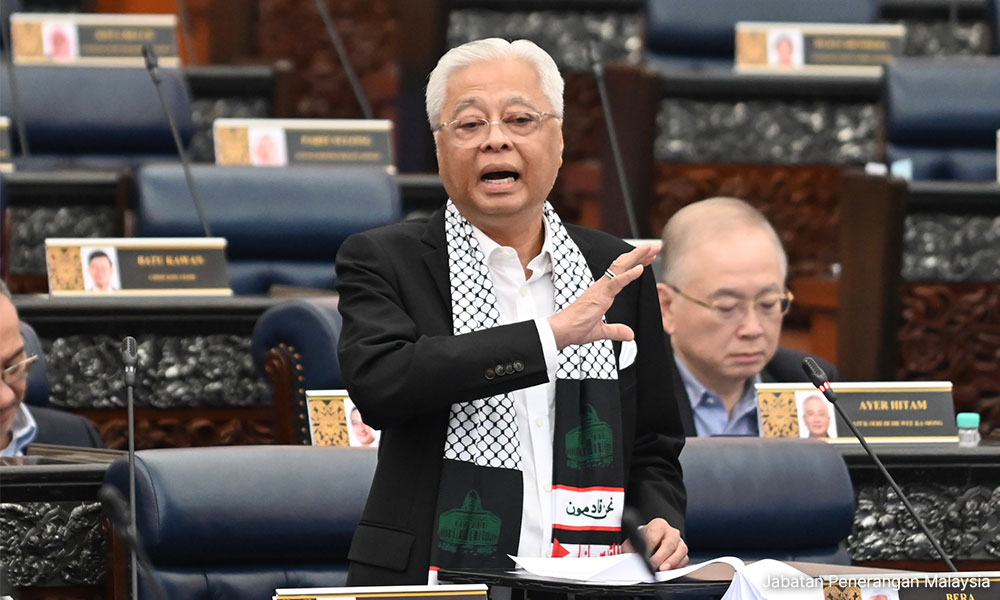
Former prime minister Ismail Sabri Yaakob
In June 2022, it was announced that the Dewan Bahasa dan Pustaka (DBP) Act 1959 would be amended to punish those who do not “respect” the national language with fines up to RM50,000 or even jail terms!
There was a lot of thunder but no rain and, somehow, the new law never came to pass.
Perhaps they realised that they would have had to punish government bodies themselves for polluting the language.
For example, public hospitals which replaced “tempat ambil ubat” with “kaunter pendispensan”? That tongue twister for pharmacies dispensing medicine is enough to make anyone “pengsan”!
Like Hadi, Ismail Sabri was also giving mixed messages. So, while promoting the national language, he was wearing and advertising British Burberry shirts that cost RM6,900 each! Perhaps his idea of BM meant Burberry Man?
Prime Minister Anwar Ibrahim is choosing another way to elevate BM - by using unusual Malay words that send people scrambling to the dictionary. For example, “katimbang” instead of “daripada” (from) and “intiha” over “penamat” (ending).
In June 2022, it was announced that the Dewan Bahasa dan Pustaka (DBP) Act 1959 would be amended to punish those who do not “respect” the national language with fines up to RM50,000 or even jail terms!
There was a lot of thunder but no rain and, somehow, the new law never came to pass.
Perhaps they realised that they would have had to punish government bodies themselves for polluting the language.
For example, public hospitals which replaced “tempat ambil ubat” with “kaunter pendispensan”? That tongue twister for pharmacies dispensing medicine is enough to make anyone “pengsan”!
Like Hadi, Ismail Sabri was also giving mixed messages. So, while promoting the national language, he was wearing and advertising British Burberry shirts that cost RM6,900 each! Perhaps his idea of BM meant Burberry Man?
Prime Minister Anwar Ibrahim is choosing another way to elevate BM - by using unusual Malay words that send people scrambling to the dictionary. For example, “katimbang” instead of “daripada” (from) and “intiha” over “penamat” (ending).
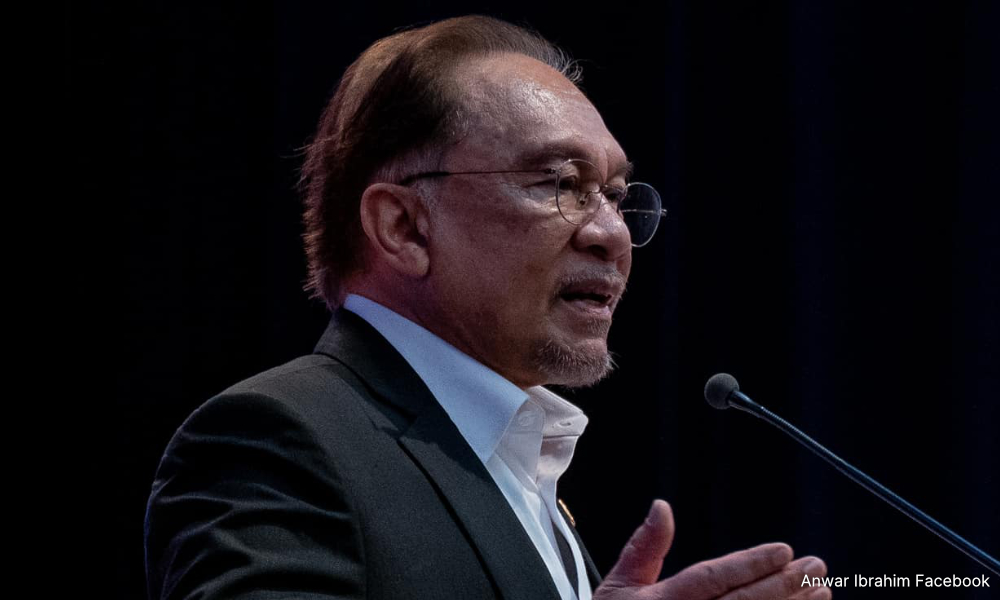
But it does seem rather forced when we already have perfectly functional Malay words.
Language is an organic thing that grows by people’s usage. Somehow, I doubt that katimbang can overtake the popularity of words like “burger cheese leleh viral”.
Root causes of respect
Jokes aside, Hadi must also ask himself what are the root causes of English being preferred over BM. This probably starts from education.
In the colonial days, people of all races regarded English schools as being of superior standard and the path to advancement.
That’s why my grandparents were even willing to sacrifice their own Chinese language and culture so that my parents could become “English-educated”.
If sekolah kebangsaan or national primary schools now were of the highest standard, most parents would willingly send their children there. It would be far cheaper than coughing up money for private English-medium schools.
Parents want the best schools so that their children can do well in life. But we all know how public school standards have declined.
Similarly, in 2022, Ismail Sabri said the use of the Malay language would not make the country backwards, as developed countries like Germany and Japan also used their own languages.
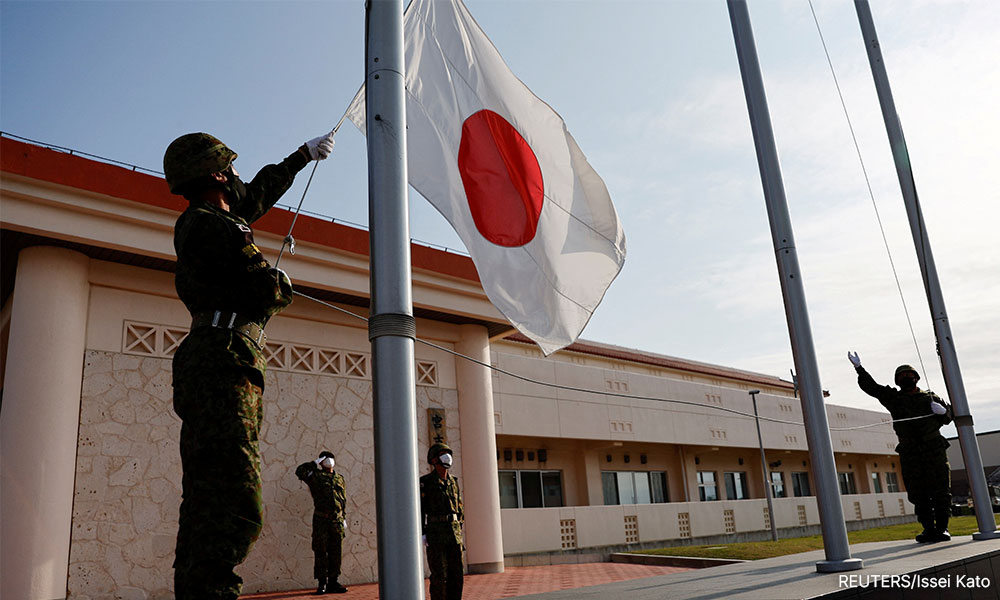
But he was confusing cause and effect - those two countries first became economic powerhouses, and then their languages followed. For example, German was the main language globally for scientific papers before World War 2.
So here are my two suggestions for increasing respect for the Malay language.
Firstly, stop making it look like a cheap “ciplak” (copycat) language by importing English words wholesale.
Secondly, make sure Malaysia becomes strong and excellent - a place where merit and ability rather than feudal bootlicking are rewarded.
These steps will automatically improve the standing of BM, not the rumblings of grumpy old politicians.
ANDREW SIA is a veteran journalist who likes teh tarik khau kurang manis. You are welcome to give him ideas to brew at tehtarik@gmail.com

Chinese merchants of Malacca deployed their tall junks to aid Portugese troops in a key role leading to the fall of Malacca to the Portugese.
ReplyDeleteThis opened the way ultimately to European colonisation of the entire Malayan territory.
The Malays have not forgotten or forgiven the Chinese "treachery".
while true that the Chinese helped the Portuguese, this is what Wiki has to say:
DeleteDuring the negotiations, Albuquerque was visited by representatives of SEVERAL merchant communities, such as the Hindus, who expressed their support for the Portuguese.
Monster I know you don't like Chinese but it's untruthful to condemn them as the SOLE villain
DeleteLike ALL historical events, their happenstances occurred with both internal & external factors.
DeleteThere were some Chinese merchants who helped the Portuguese in conquering port of Malacca. Yet there were Chinese merchants helped to defense that attack!
Likewise, there were Malacca natives, melayu, Hindus, bugs, Sumatrans etc helping the invading Portuguese forces.
Where r u to draw the line?
The most glaring factor in the fall of Malacca sultanate's was the line of incompetent sultans, assisted by a bunch of mamak bendahara.
This mfer is twisting an unsubstantiated Wikipedia entry to badmouth the Chinese. Just the same tactics that those 台毒 frogs r deploying.
M…… oop… it's sint no Chinese but an honorary mat Salleh.